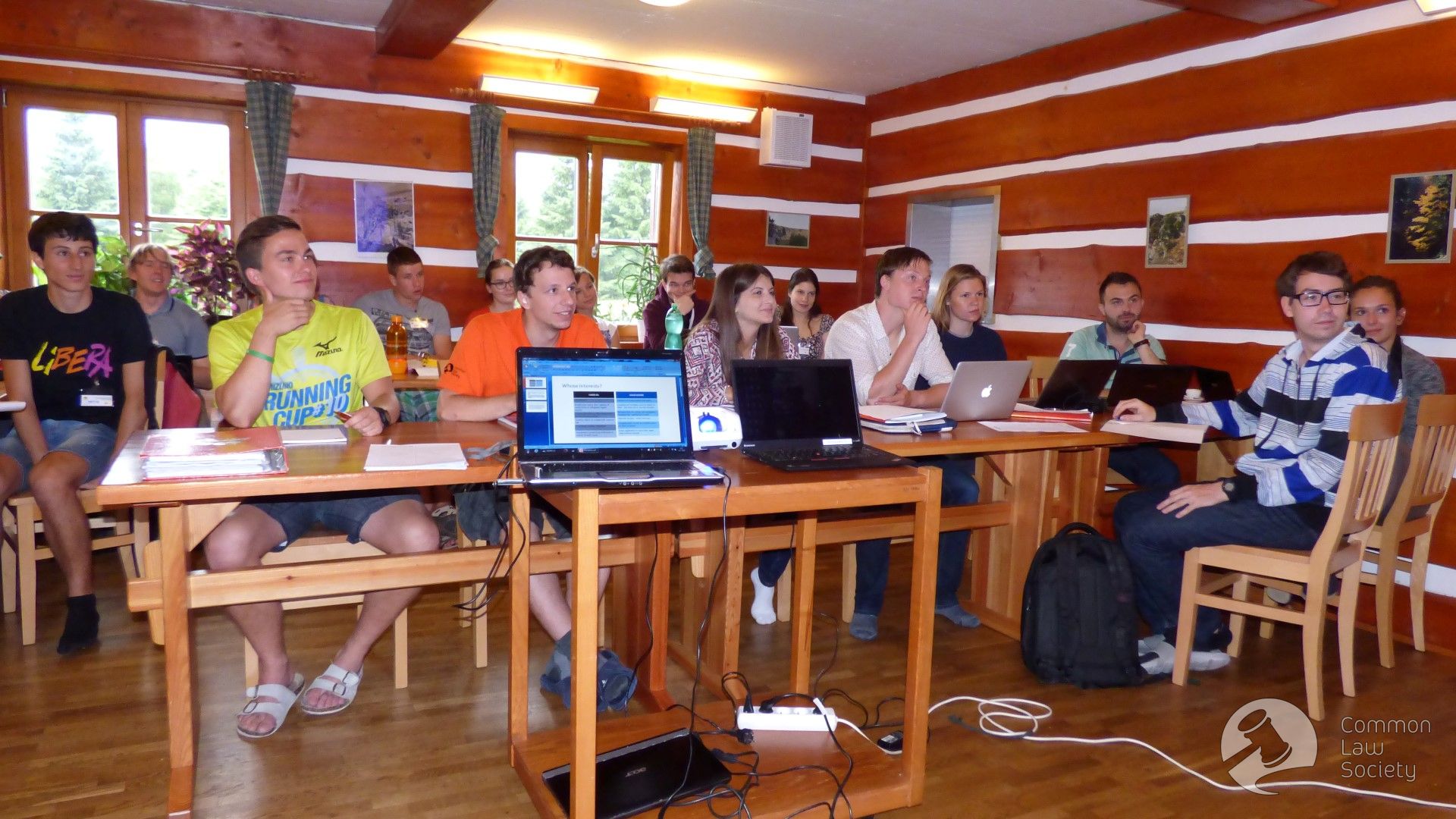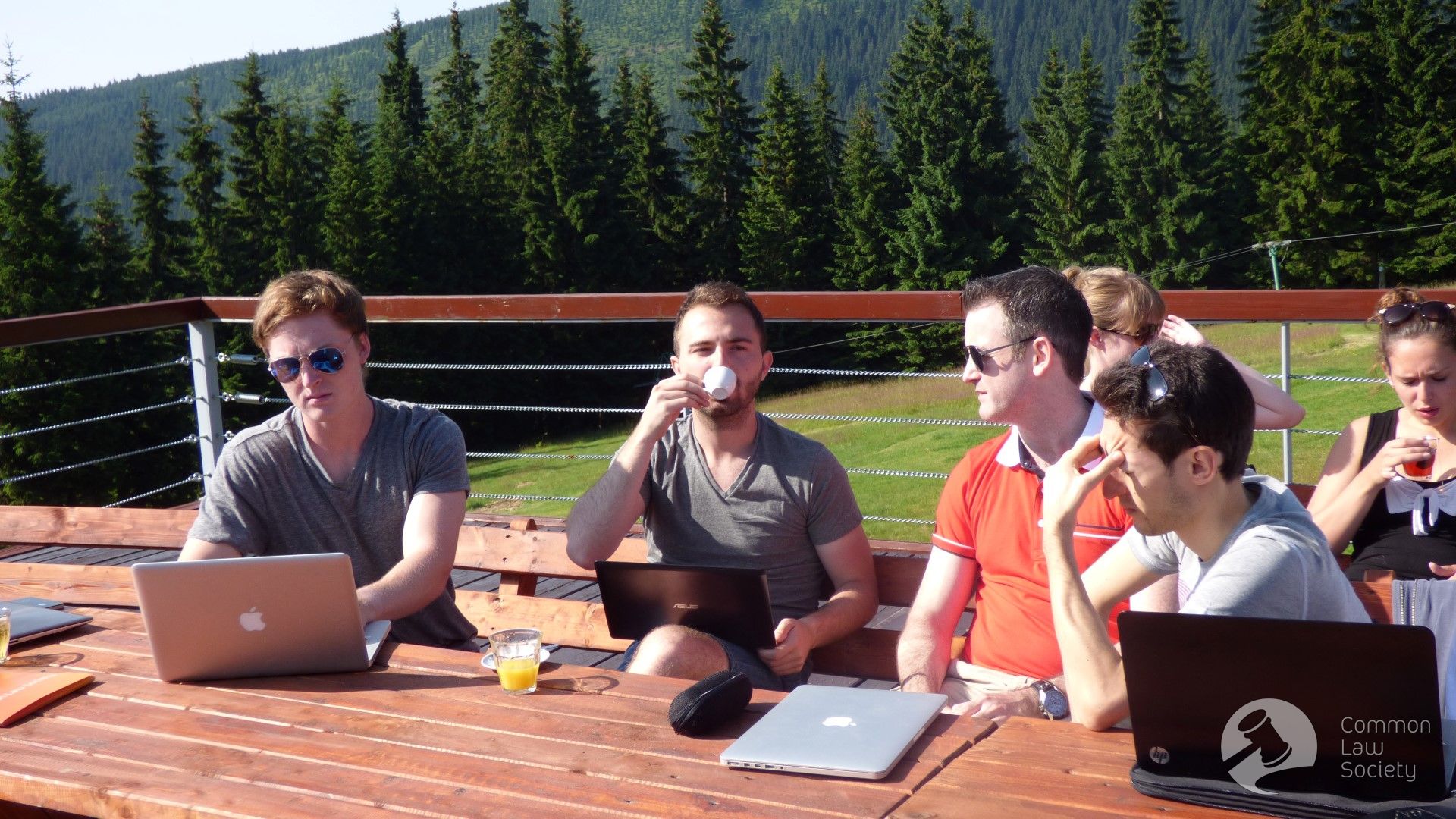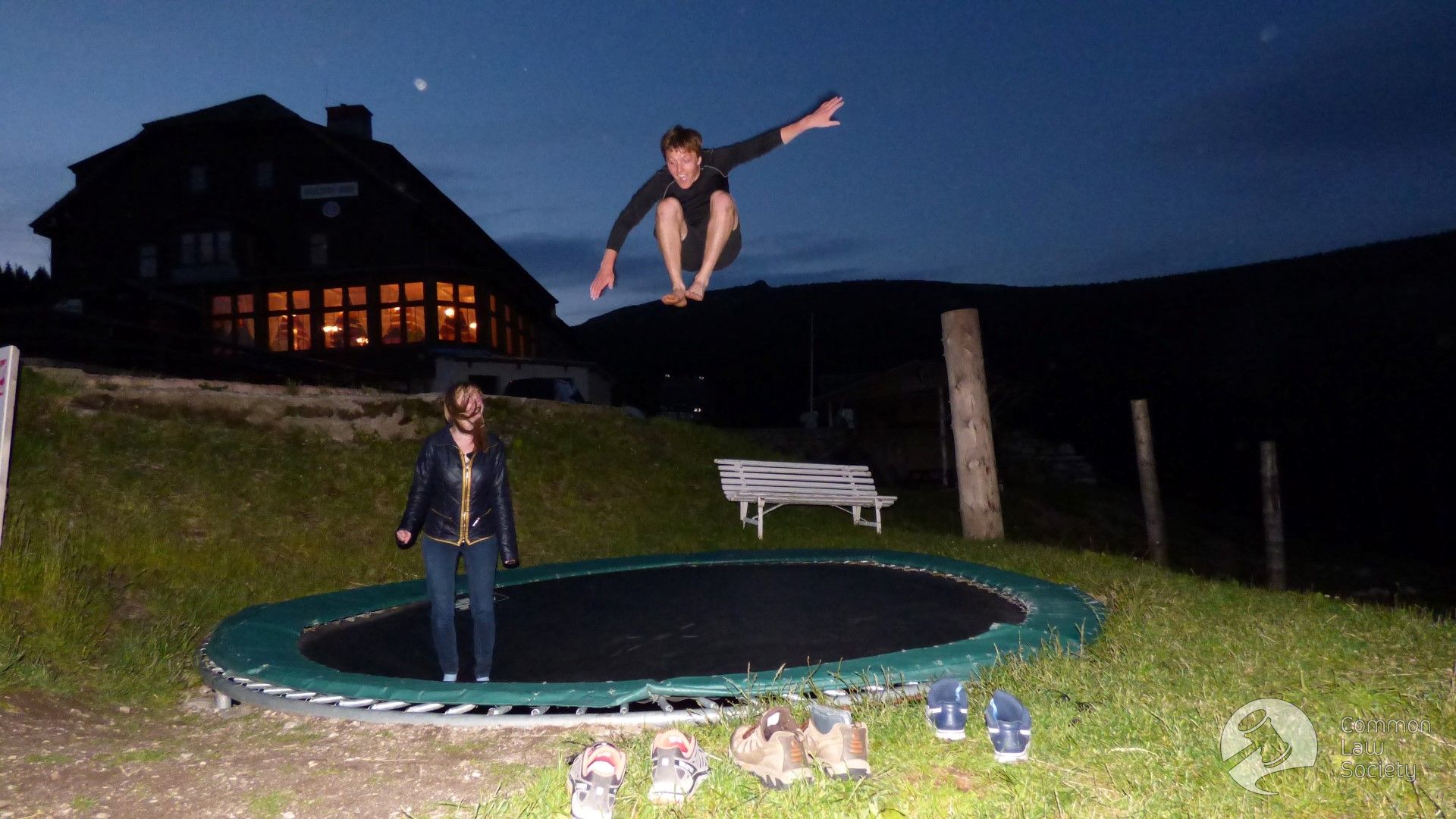I do not represent the quintessential summer school participant. While most students hailed this past year from European nations, I represented the only student from the USA. While most students came with a formal academic background in law, I do not hold any formal training in this subject; my interest in the summer school stemmed from a fascination in the intersection between human rights law and healthcare. Yet, although I do not represent the typical summer school participant, I confidently say I gained as much if not more from my experience than one on a formal academic legal program. I could not recommend the summer school enough, especially for those such as myself from outside of Europe; for to delve into such fascinating depth and glean an international perspective is incredibly engaging and indeed necessary in an increasingly global society.

Brian Adams (fifth from the right) at the first lecture of Eduardo Gill-Pedro
The quality and depth of academic engagement made the CLS summer school a life-changing two weeks. Each lecturer presented information in a fascinating and stimulating manner, and make a point of providing an intimate, discussion-based learning environment. The student executives do a terrific job of choosing leading intellectuals that simply love to teach. This past year, the theme of the summer school was "Fundamental Rights in Europe" with the specialization course on “Right to Privacy in a Digital Age,” and each lecturer delivered different and engaging perspective on human rights law. We tackled queries such as: What is a human right? What does it mean to call a human right fundamental? How do we navigate disparities in human rights amidst contemporary immigration issues? Should consumers be protected by the right to delete, or does public interest motivate the maintenance of electronic records? From Eduardo Gill-Pedro’s introduction to human rights to Orla Lynskey’s presentation on modern privacy issues introduced by entities such as Facebook and Google, lecturers did not only teach by also posed excellent questions that allowed the group to think critically about contemporary issues.
These questions are themselves intriguing; yet, debating these concepts alongside perspectives from fifteen other nations allowed me to both understand human rights issues in their international context and sharpen my own understanding and perspectives on these crucial queries. As an American raised in the legal tradition of the USA, these conversations proved especially important in challenging my viewpoint with a European perspective. I remember one particular conversation regarding the right to delete in the well-known case of Google Spain. In the span of five minutes, the voices of an impassioned Italian, articulate Swede, concerned Finn, and a smorgasbord of other nationalities gave their opinions and perspectives. After the symphony of accents subsided, I held a complete different opinion on the issue at hand. All conversations proved incredibly academically rich and provided a forum in which each participant felt supported in thinking critically and drawing their own conclusions.

Brian enjoying the sun while discussing with other participants
Another element I enjoyed immensely involved the professionals that offered their perspectives. We held the distinct honor to hear from a judge of both the ECHR (European Court of Human Rights) and the ECJ (European Court of Justice), an experience which opened my eyes as to the practical issues facing legal professionals on the cutting edge of the decision-making process. We also heard from individuals working in the ECHR court system and a representative from the media affected by the right to delete legislation, perspectives which also helped to illuminate these policy issues in their real-world context. I thoroughly enjoyed this aspect of programming, especially as an individual deeply concerned and connected to how these human rights policies might be applied in practice. The executive team did a terrific job of choosing individuals that might offer a bridge between our academic conversations and how law is practiced in the real World.
Lectures and legal engagement aside, the atmosphere of the summer school is truly magical. From the moment entering Spindleruv Mlyn, the Czech mountains envelop in an aura of grandeur and mystique. The summer school takes place at the Patejdlova bouda (translated to a chalet) overlooking the Giant Mountains, with verdant green of the pine forest flowing across gentle hills to meet the azul sky above. Wildflowers spring from lush meadows, and miles of hiking trails are ready upon stepping out from the front door. Some of my best memories are watching the magenta sunset transform into a smattering of stars overhead as we spoke about law, human rights, and life deep into the night. For those foodies out there, the chefs provide a balance between traditional Czech fare and World cuisines, providing for almost any taste. This beautiful physical environment provides the perfect canvas upon which to paint the relationships and colorful conversations that will invigorate and inspire.

Brian just enjoying himself after the lectures
Perhaps my favorite aspect of the summer school, however, did not stem from the academics or physical environment but from the incredible relationships formed within these two weeks. It takes a both academically engaged and honestly quite adventurous individual to sacrifice two weeks of vacation for an adventure into the Czech mountains. Throughout my entire stay at the summer school, I felt supported and had a blast amongst friends that both cared about the issues we discussed and loved to have a bit of fun. Moments of laughter, discussion over Czech beers, and recordings of “happy birthday” in seven different languages will forever illuminate my memory of the summer school. At its end, I emerged not only with a much greater understanding of human rights and law but also with international friendships that will last a lifetime.
The value of the View from a Mountain summer school cannot be overstated: it is a journey both intellectual and personal, one that will both transform your legal knowledge and challenge you with the intricacies of international perspectives. I know it sounds like they paid me to write this, but I do it happily because of my excellent experience. No matter your personal or academic background, I strongly encourage you to apply for legal studies and life might be experienced more clearly after having seen the View from a Mountain!


CommentsTell us your opinion...